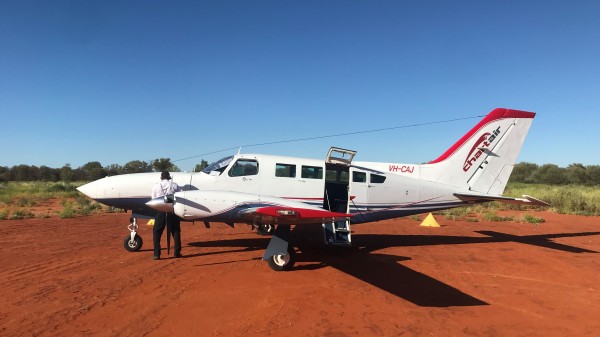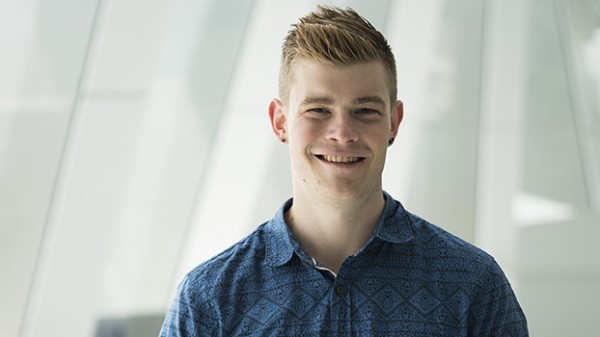Study Neuroscience at ANU
Can you imagine building a career in research by studying how cells and the nervous system work in the brain and body?
The Master of Neuroscience is your opportunity to learn more about biology, biotechnology and policy roles in clinical medicine, biomedical science and education.
Work with some of the Australia's leading scientists in the field to develop the theoretical and practical skills for conducting research into modern concepts and methodologies in neuroscience.
This highly interactive, research-based neuroscience program provides opportunities to work closely with staff on a range of neuroscience projects. Current research staff are focused on modern aspects of neuroscience, including optogenetics, a way of studying brain cell sensitivity to light, measuring nerve activity and how chemicals are released, and the degradation of the eye’s retina.
Key facts
What you will learn
Master of Neuroscience
The Master of Neuroscience offers a variety of study areas such as cellular and systems neuroscience, cell physiology in health and disease. neuroscience research proposal, medical physiology and pharmacology, biochemistry and nutrition, advanced research techniques, research, treatment and policy, neuropsychology and cognitive neuroscience, science communication, and human ecology.
Advanced program
The Advanced program consists of one year of coursework plus one year of independent research. The coursework component will provide you with an advanced knowledge of current concepts in neuroscience, and will support those who wish to move into a neuroscience field from related areas of science and psychology but do not have a significant neuroscience background.
Your independent research will allow you to develop expertise in a nominated area.
A scholarship valued at $6,000 per year is available to exceptional students enrolled in the Master of Neuroscience (Advanced).
Research topics
We have a wide range of potential research topics. They range from short-term PhB projects to year-long honours and graduate projects to three-year PhD projects.
What it's like to study Neuroscience
Neuroscience grad has research on the brain
Ayla Venslovas’ complex neuroscience research is one of the reasons why she says she’ll be graduating with confidence in her chosen field.
Meet neuroscience student Tom Shaw
"I didn’t have undergraduate training in cellular neuroscience so the Masters program was challenging at first but it’s exactly what I want to do, so that’s kept me motivated."
Meet some of your teachers

Associate Professor Brian Billups
Brian's research has primarily focused on cellular nervous systems, the central nervous system, cell physiology, basic pharmacology, receptors and membrane biology.

Professor Ehsan Arabzadeh
Ehsan is studying sensory processing at the level of single cells and neuronal populations. His lab, the Neural Coding Group, is combining electrophysiological recordings, optical imaging, and computational analyses to create detailed models of the neural circuits that underpin the efficient encoding and decoding of sensory signals.
Neuroscience careers
Graduating from the Master of Neuroscience will enhance your existing abilities and expertise, building on your undergraduate experience to retrain for a new career, or provide you with new tools and insight into your work or study ambitions. As a graduate, you will be highly employable for work in research, policy, clinical and management roles in Australia and across the world including:
- PhD and/or Research Fellow
- Genetics
- Cognitive neuroscience
- Psychology
- Science communication
- Lecturing, teaching and education.
Students graduate with the ability to carry out research on neuroscience in university, industry, health or government research institutions.
Master of Neuroscience students rate the degree highly, with an overall student satisfaction rating of 100 per cent (ANU Undergraduate and Postgraduate Satisfaction Ratings).
The Australian National University has been ranked as the top university for graduate employability in Australia in the Global University Employability Ranking 2020. As a student at ANU, you gain access to the ANU CareerHub – an online career development and employability tool that includes a jobs board and careers resources. You also have access to drop-in chats with a career consultant and to attend our career fairs to meet potential employers.
Fees & scholarships
Tuition fees: Tuition fees
New students in the Advanced program are eligible to apply for a Commonwealth Supported Place.
Scholarships: Scholarships
ANU offers many scholarships both to overcome disadvantage and to recognise academic merit.
How to apply
Understand the how to apply steps
Visit the domestic postgraduate applications page to prepare for your application to ANU.
Understand the how to apply steps
Visit the international postgraduate applications page to prepare for your application to ANU.
Need more information?
Send us an enquiry and we'll get back to you within 48 hours















